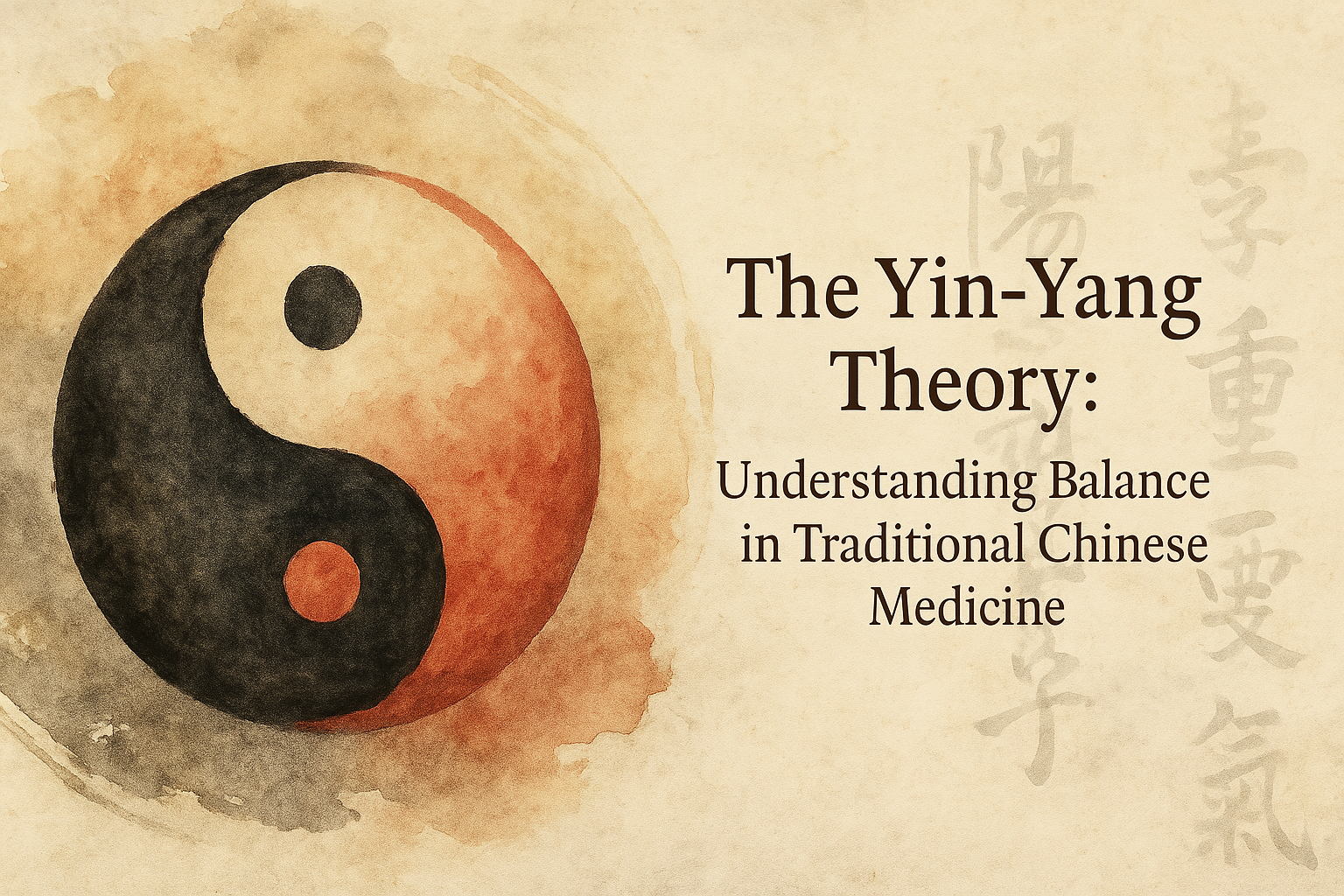In Traditional Chinese Medicine (TCM), the Yin-Yang theory serves as a foundational framework for understanding the body, nature, and the universe. Rooted in ancient Chinese philosophy, Yin and Yang represent two opposing but complementary forces that are present in all aspects of life.
What Are Yin and Yang?
Yin is associated with qualities like darkness, cold, rest, and inward movement. It governs the substance and structure of the body, such as blood, body fluids, and internal organs. Yang, on the other hand, relates to light, warmth, activity, and outward movement. It governs the functions of the body—metabolism, circulation, and defense against disease.
Rather than being static entities, Yin and Yang are dynamic. They exist in a constant state of flux, continuously transforming into one another. For example, day turns into night, activity gives way to rest, and heat can become cold.
Application in TCM
TCM practitioners use the Yin-Yang theory to assess health and disease. A healthy body maintains a dynamic equilibrium between Yin and Yang. Imbalances—whether an excess or deficiency of either—can manifest as illness.
For instance:
- A Yin deficiency may result in symptoms like night sweats, dry mouth, and a rapid pulse.
- A Yang deficiency can lead to cold limbs, fatigue, and a pale tongue.
- Excess Yang might show as fever, inflammation, or irritability.
- Excess Yin could manifest as cold sensations, fluid retention, or low energy.
Treatment involves restoring balance. Herbs, acupuncture, dietary recommendations, and lifestyle changes are tailored to support Yin or Yang, depending on the patient’s condition.
Beyond the Body
Yin and Yang also reflect seasonal and environmental cycles. Winter (Yin) encourages rest and nourishment, while summer (Yang) invites activity and outward expression. Understanding this interplay helps guide behavior and health practices throughout the year.
A System of Harmony
The Yin-Yang theory does not aim for absolute equality, but harmonious proportion. TCM views the body as a microcosm of the universe—subject to the same principles of polarity and transformation.
By honoring the dynamic relationship of Yin and Yang, TCM fosters not just the treatment of symptoms, but the cultivation of long-term health and balance.


发表回复